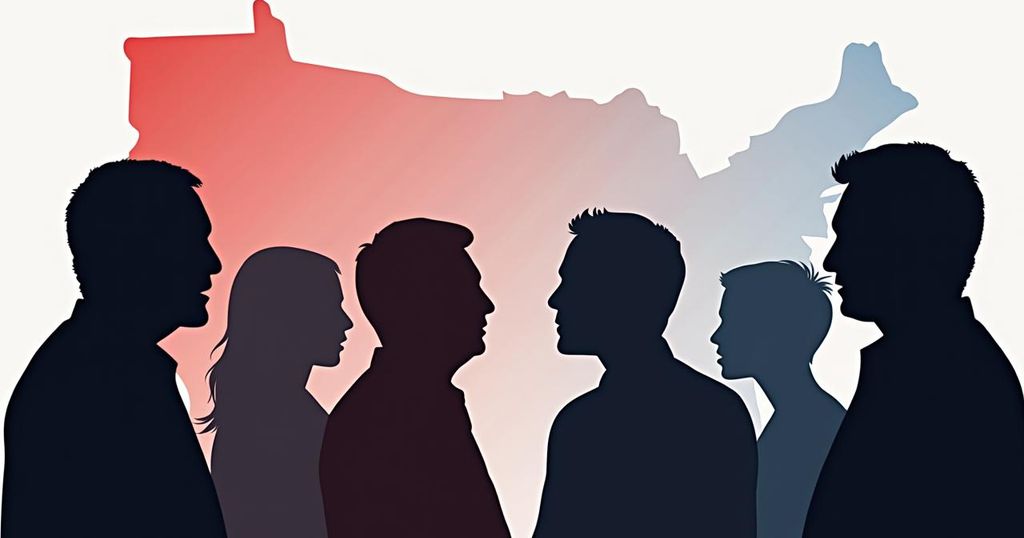Insights from Independent Voters in Minnesota on the Presidential Election

Independent voters in Minnesota are poised to significantly influence the presidential election on November 5, with a noteworthy division in support between the Republican and Democratic tickets. Concerns about the economy, immigration, and democracy’s integrity dominate their sentiments. Conversations with six independent voters reveal their hesitancy and lack of enthusiasm for both candidates, underscoring the complexities of their decision-making process as they evaluate key issues.
In Minnesota, independent voters — those unassociated with either the Democratic or Republican parties — are anticipated to play a decisive role in the forthcoming presidential election scheduled for November 5. According to a recent Star Tribune/MPR News/KARE 11 poll, approximately one-third of likely voters identify as independent, and they exhibit a notable division in their electoral preferences. The poll revealed that 43% of independent voters in Minnesota are likely to support the Republican ticket led by former President Donald Trump and Senator JD Vance, whereas 41% lean towards the Democratic ticket of Vice President Kamala Harris and Governor Tim Walz. Additionally, 14% of respondents remained undecided, while a mere 2% expressed support for third-party candidates. The survey was conducted among 800 Minnesota voters, maintaining a margin of error of plus or minus 3.5 percentage points. There exists a pervasive sense of pessimism regarding the economy among these voters, with 46% rating it as “poor.” A significant concern is illegal immigration, deemed a “very” or “somewhat” serious problem by 81% of the independent participants. Furthermore, 64% indicated that they feel democracy is being undermined. In conversations with six independent voters within a Minnesota Star Tribune panel, it became clear that enthusiasm for both presidential candidates — and their running mates — is notably low. Among the panelists, Ken Vraa, 78, from Maple Grove, expressed dissatisfaction with Trump’s tendency to “lie so much” and conveyed a willingness to support Harris, appreciating her focus on small business and child tax credit policies. Billy Bird, aged 30 and based in Minneapolis, who previously supported candidates from both parties, underscored his concern about the national debt and indicated his support for Harris, whom he described as a “good person.” Harold Freyholtz, a 76-year-old Vietnam veteran and a conservative-leaning independent, voiced his frustrations regarding Trump’s public persona, stating he votes for Trump while “holding my nose.” Greg Kjos, 62, articulated his disapproval of Trump’s behavior in the 1980s and emphasized key issues surrounding immigration and Social Security, stating he would support Harris this election. Wayne Rohde, 63, has remained undecided, highlighting the mounting costs of goods and services as a significant concern, while Mary Zappia, a 72-year-old retired physical therapist, criticized both candidates for their untrustworthiness and moral failings. Zappia, who is leaning toward supporting the Harris/Walz ticket, remarked that both candidates appear to be engaging in typical political maneuvering without authenticity. As the election approaches, the sentiments of these independent voters suggest a complex and nuanced landscape, wherein they seek accountability, economic stability, and moral integrity from their candidates.
The rising significance of independent voters in elections, particularly in battleground states like Minnesota, has become a focal point of political analysis. With a growing number of individuals disavowing traditional party affiliations, they increasingly wield the power to sway election outcomes, particularly in closely contested races. Their diverse perspectives often reflect a blend of conservative and liberal values, leading to varied priorities regarding economic issues, immigration policy, and governance. As evidenced by recent polls, a substantial portion of the electorate identifies as independent, highlighting the importance of engaging this demographic in the pre-election dialogue.
The insights gathered from the six independent voters in Minnesota reveal a collective ambivalence towards both major presidential candidates. Their concerns chiefly revolve around economic issues, illegal immigration, and the perceived threats to democracy. Such sentiments illustrate a demand for candidates who not only exhibit integrity and accountability but also address the pressing issues of national debt and social welfare. As the election nears, understanding these perspectives will be crucial for both parties aiming to capture the independent vote in a pivotal state.
Original Source: www.startribune.com






